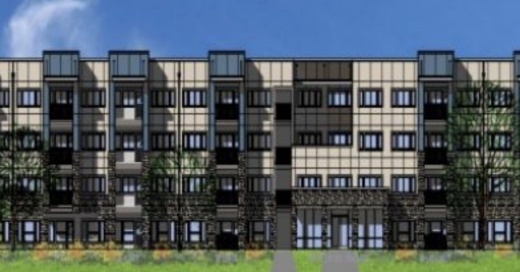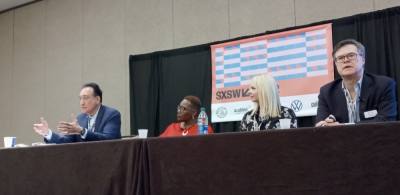According to Henry Cisneros—a former San Antonio mayor and President Clinton Administration official—despite barriers to achieving affordable housing, policymakers and developers must realize how vital it is for everyone to have stable housing.
Cisneros, who served as San Antonio’s mayor for eight years in the 1980s, led a South by Southwest Conference & Festivals panel discussion, “Cracking the Housing Affordability Code,” on March 14.
Cisneros served as U.S. Housing and Urban Development secretary during the first term of Bill Clinton’s presidency.
Cisneros now chairs Cityview, a company that works with urban homebuilders to create homes priced for average families. Additionally, he co-chairs the Bipartisan Policy Center’s housing commission.
Cisneros said secure, long-term housing is important because it allows each occupant a place to rest; store their food, medicine, clothing and other essentials; and comfortably pursue and keep a career and education.
“It’s more than four walls; it’s essential to life,” Cisneros said of housing.
However, Cisneros and fellow SXSW panelists said while many people are able to enjoy various economic opportunities, housing conditions are worsening for financially struggling individuals and families, especially in growing cities.
Panelist Dennis Shea, executive director of the J. Ronald Terwilliger Center for Housing Policy at the Bipartisan Policy Center, said fewer Americans nowadays can afford their local median-priced home nationwide compared with 2012.
Statistics from the National Association of Realtors and Rosen Consulting Group show that residents in 42 states were able to buy an average-priced home in their community in 2019. Residents in 48 states were able to afford a median-priced house in 2012, according to the same statistics.
Cisneros, Shea and the other panelists—including Karen Freeman-Wilson, Chicago Urban League president and CEO, and Dana Wade, chief production officer at Maryland-based real estate firm Walker & Dunlop—agreed many renters and homeowners are facing financial hardships exacerbated by things, such as inflation and stagnant wages in some communities and industries.
But Cisneros said another problem is that demand for housing is outpacing supplies of new housing. He also said local governments and housing organizations must do what they can to preserve existing, salvageable housing to increase the amount of affordable housing.
Shea said being able to buy a house is critical for people and the economy.
“Home ownership is the primary means in the United States by which we build up wealth,” Shea said, adding that the median U.S. homeowner has 40% more personal wealth than the average renter. “Home ownership should be broadly accessible and available to anyone who is capable and ready to shoulder the burdens of home ownership.”
Freeman said aside from rising rents, substandard housing and looming threats of eviction or foreclosure force renters and homeowners to spend much of their overall time considering financial negatives in their life.
“That has the potential of taking over your life,” Freeman said.
Wade said many U.S. renters “are falling behind” in keeping pace with their expenses—a challenge worsened by the COVID-19 pandemic’s economic effects —and they are further burdened with things, such as seeking affordable and reliable child care, a job, or education.
“For most Americans, the sum total of their worth, or wealth, is tied up in the equity of their home,” Cisneros added.
The panelists said things, such as tax credits and funds available from the American Rescue Plan Act can be used by local government agencies and housing organizations to help struggling renters and homeowners maintain financial stability where their housing situation is concerned.
But the panelists said incentivizing communities or developers to build new affordable housing or preserve and improve existing housing is difficult because local governments and developers are discouraged by potential higher costs and bureaucratic requirements associated with such an undertaking.
Cisneros said people and officials in many cities oppose higher density zoning that could accommodate more affordable housing, particularly for renters.
Cisneros also admitted many people possess a “NIMBY—or not in my back yard” mindset regarding the potential for development of affordable housing in their neighborhood.
Cisneros urged audience members to explore best housing practices being employed in different U.S. cities and determine which ones could best suit their own community.
The panelists also acknowledge that tackling homelessness is a struggle because of the various factors that contribute to people not having permanent housing.
Cisneros and Freeman attributed homelessness to jobs with stagnated wages; lack of secure, affordable housing; lack of supportive and transitional housing; and—in some cases—addiction or mental issues.
“It’s a complicated network of problems,” Cisneros said.
Wade said she would like to see more government agencies collaborate with businesses and nonprofits to do what is possible to increase affordable housing and to help the homeless and those renters and homeowners at risk of being forced from their homes.
“There is plenty of help out there, they’re just not all synchronized,” Wade said.






